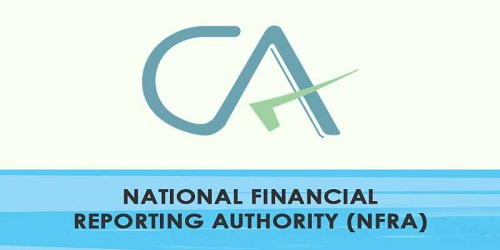On March 1, 2018, Union Cabinet chaired by the Prime Minister Narendra Modi approved the proposal for establishment of National Financial Reporting Authority (NFRA). The NFRA will have a Chairperson, a Secretary and three full-time Members.
Details about National Financial Reporting Authority (NFRA):
- Role: Independent regulator for the auditing profession.
- Jurisdiction: Chartered Accountants and their firms, listed companies, large unlisted public companies and other entities for investigation where public interest would be involved.
- Need, as per situation: In wake of the recent accounting scams across various jurisdictions, it has become necessary to have an independent regulator (independent from those it regulates) for enforcement of auditing standards and ensuring the quality of audits in order to maintain investor and public confidence in financial disclosures of companies.
- Need, as per law: To have an independent regulator for the auditing profession was one of the key changes brought in by the Companies Act, 2013. This change was incorporated in the act on the specific recommendations of the Standing Committee on Finance.
- Impact: Establishing NFRA will not only boost investor confidence in Indian businesses but will also align Indian norms with International practices. These factors shall result in improved foreign/domestic investments in India.
- Other Information: Current regulatory role of Institute of Chartered Accountants of India(ICAI) and Quality Review Board (QRB) shall continue for those companies that are below the jurisdiction of NFRA. Besides ICAI will play an advisory role to NFRA with respect to accounting and auditing standards and policies.
Cabinet approves Fugitive Economic Offenders Bill, 2018
On March 1, 2018, Union Cabinet approved the Fugitive Economic Offenders Bill, 2018 to deal with those who escape overseas after committing financial malpractices in India.
Key Provisions of Fugitive Economic Offenders Bill, 2018:
As per the bill, a Fugitive Economic Offender is a person who has an arrest warrant issued in respect of a scheduled offence and who leaves or has left India so as to avoid criminal prosecution, or refuses to return to India to face criminal prosecution.
- The Bill gives powers to the government to confiscate property of such Fugitive Economic Offenders.
- Besides, any company where such offender is a promoter or key managerial personnel or majority shareholder, would be disentitled from bringing forward or defending any civil claim against government confiscation.




